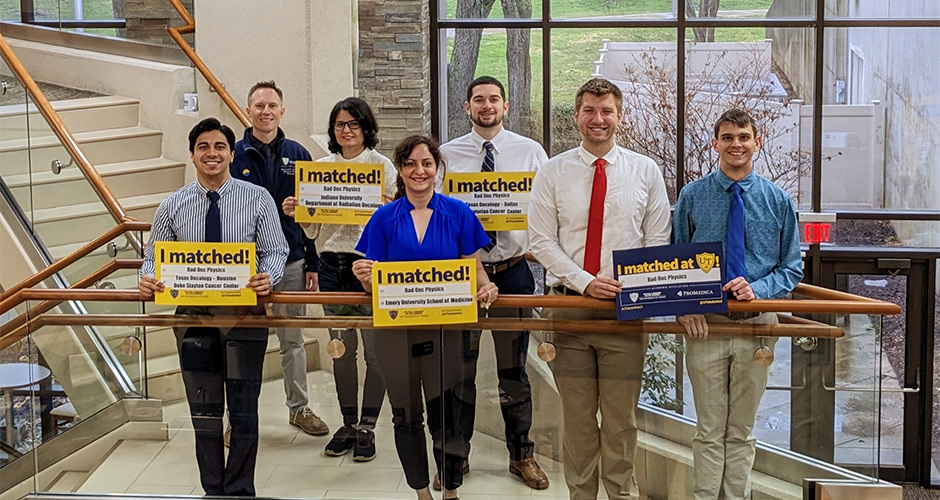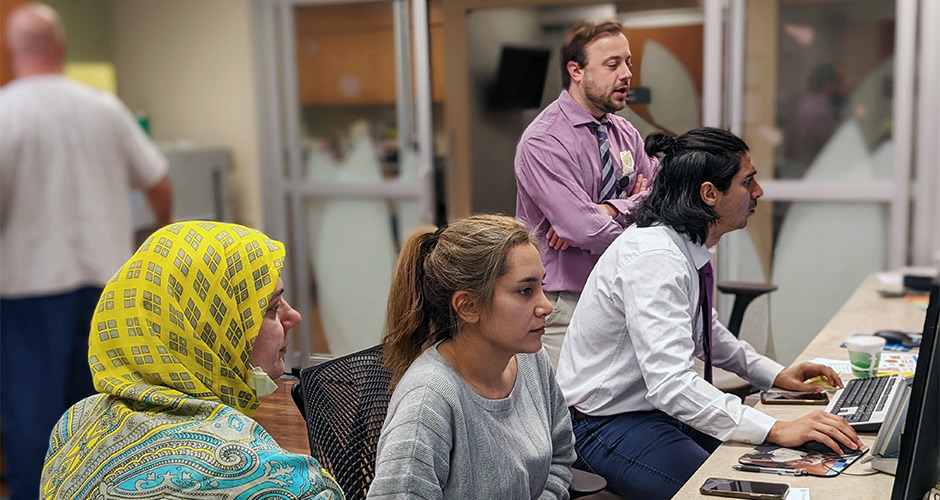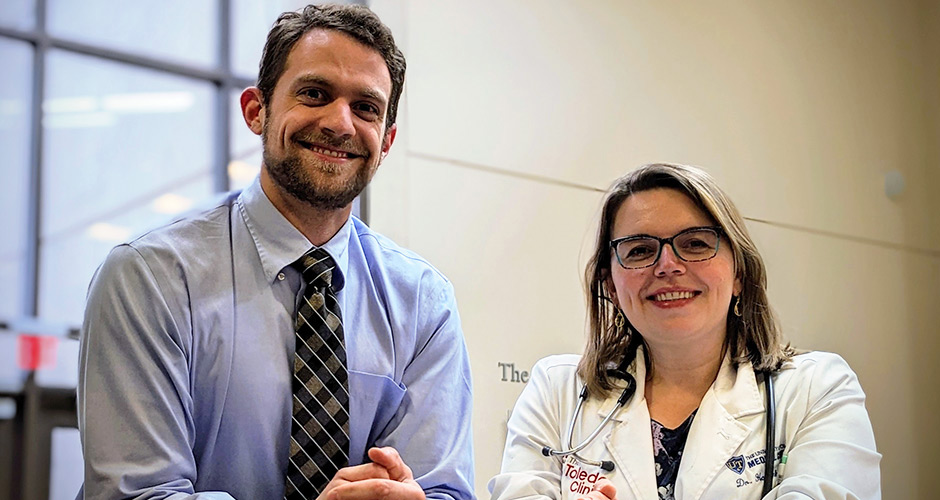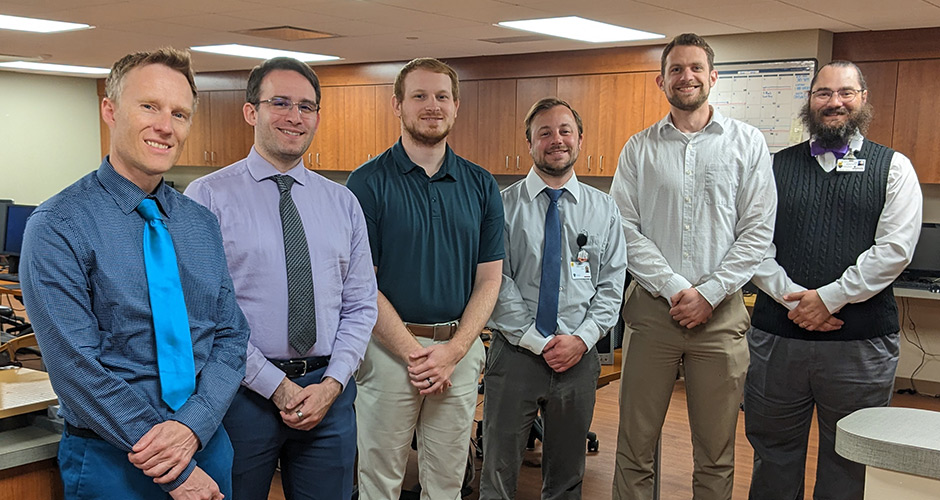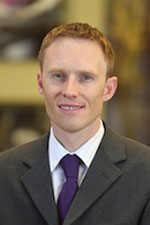 Due to a special emphasis on the board exam preparation, our residents also have a
100% success rate at passing the ABR part 2 on the first attempt.
Due to a special emphasis on the board exam preparation, our residents also have a
100% success rate at passing the ABR part 2 on the first attempt.
We believe that the department of radiation oncology at The University of Toledo is uniquely qualified to successfully train medical physics residents. Running a successful medical physics graduate program that has always focused on the clinical skills allowed us accumulate decades of experience before receiving the CAMPEP accreditation for our residency. Additionally, we have the faculty, the facilities and technology, and the access to highly heterogeneous patient population necessary for diverse medical physics experience. Our agreement with the Hickman Cancer Center at Flower Hospital provides additional training opportunities and an exposure to a non-academic clinical environment.
The program objectives include the development of the technical knowledge and skills, an appreciation of the clinical purpose of the various technologies and the ability to use analytical and research methods to solve problems in radiation oncology. We aim to train residents how to deploy new strategies into the clinic and how to critically evaluate research and scholarship in medical physics. Residents will learn leadership skills through the supervision and teaching of junior residents and students, and acquire effective communication skills through direct interactions with other members of the clinical team. Residents are educated in professionalism and ethics; skills that are essential to build trust between physicists and physicians, and physicists and the rest of the patient care team.
Major objectives of the program include:
- Preparing the graduate for certification in the specialty of Radiation Oncology Physics by an appropriate certification board.
- Foster an understanding in the importance of patient safety by utilizing dosimetric clinical goals in treatment plans, checklists and multiple levels of quality assurance.
- Providing broad based, in-depth training that will permit the graduate to immediately contribute to the quality of medical care received by the radiation oncology patient. This training shall include the technical knowledge, skills and competency required for the safe application of the technologies used in the practice of medical physics.
- Graduates should gain an appreciation of the clinical purpose and applications of sophisticated technologies and the ability to use analytical and research methods to solve problems arising in the clinical environment.
- Graduates should have the ability to critically evaluate research and scholarship in medical physics and be able to use analytical and research methods to solve problems arising in the clinical environment.
- Graduates should demonstrate communication and interpersonal skills in order to be able to function in a collaborative, multidisciplinary environment. In doing so, they should always utilize ethical conduct and professionalism, both inside and outside the clinic.
- Graduates should value career-long continuing education to keep their professional knowledge and skills current.
Training will take place under the close supervision of experienced radiation oncology physicists. The program emphasizes all areas of training and experience that will be needed by a radiation oncology medical physicist in a “state-of-the-art” treatment facility, as well as expose them to management of a single accelerator community-based free-standing facility.



